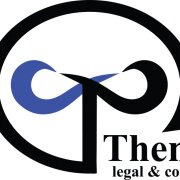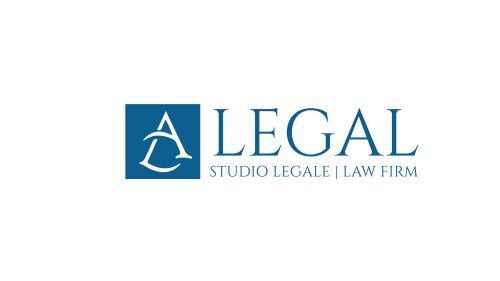Best Brokerage Lawyers in Watthana
Share your needs with us, get contacted by law firms.
Free. Takes 2 min.
Free Guide to Hiring a Real Estate Lawyer
List of the best lawyers in Watthana, Thailand
About Brokerage Law in Watthana, Thailand
Brokerage in Watthana, Thailand, primarily encompasses services where an individual or entity acts as an intermediary or agent to facilitate transactions, such as real estate sales, rental arrangements, financial investments, or other commercial negotiations. Brokers play a key role in connecting buyers to sellers and negotiating terms. In Thailand, brokerage activities are subject to national laws as well as local ordinances specific to Bangkok and the Watthana district. These laws are designed to protect consumers and ensure fair, transparent dealings.
Why You May Need a Lawyer
Engaging in brokerage transactions can often involve complex legal arrangements and contractual obligations. Common situations where people may require legal assistance include:
- Reviewing or drafting brokerage agreements to ensure fair terms
- Disputes over broker commissions or performance of duties
- Unclear representations or alleged misrepresentations by brokers
- Due diligence in real estate purchase, rental, or business investments
- Addressing unauthorized brokerage activity or unlicensed agents
- Cross-border transactions involving international clients
- Compliance with local and national regulations governing broker conduct
- Seeking restitution for loss or damages resulting from brokerage negligence
A qualified lawyer can help protect your interests, negotiate on your behalf, and provide advice on your rights and obligations under Thai law.
Local Laws Overview
In Watthana, brokerage operations are governed by both the Civil and Commercial Code of Thailand and regulations issued by government authorities, such as the Department of Business Development and, for real estate, the Real Estate Broker Act. Key aspects of local laws include:
- Brokers must operate with valid licenses for certain transactions, especially real estate and finance
- All brokerage agreements should be in writing and disclose the scope of services and compensation
- Brokers are legally obligated to act honestly and disclose all material facts to clients
- Commission rates and payment terms must be clearly agreed upon and cannot exceed statutory limits where applicable
- Certain transactions, such as real estate or financial investments, may require compliance with specific anti-money laundering or consumer protection statutes
- Foreign individuals or companies must comply with restrictions on participating in brokerage activities without proper registration
- Dispute resolution is typically pursued through local courts or arbitration, depending on contract terms
Understanding these local legal requirements is crucial for anyone engaging with brokers in Watthana or the wider Bangkok area.
Frequently Asked Questions
What types of brokerage services are available in Watthana?
Common services include real estate brokerage, financial or investment brokerage, insurance brokerage, and business matching.
Do brokers need a license to operate in Watthana?
For certain sectors, such as real estate and finance, brokers are required to hold relevant licenses issued by Thai authorities.
What should be included in a brokerage agreement?
An agreement should state the broker's duties, commission rates, terms of payment, and duration and must disclose any potential conflicts of interest.
How much commission is a broker allowed to charge?
Commission limits depend on the nature of the transaction. In real estate, typical commissions are set by market standards but should not exceed legal caps where applicable.
Can foreigners act as brokers in Watthana?
Foreigners must comply with ownership and licensing regulations, and often require a partnership with a Thai entity to operate legally.
What should I do if a broker acts dishonestly or negligently?
You can seek to terminate the agreement, request damages, or file a complaint with the relevant authority or pursue legal action.
Is verbal agreement with a broker legally binding?
While verbal agreements may sometimes be recognized under Thai law, written contracts are highly recommended to avoid disputes and provide evidence.
How are disputes with brokers usually resolved?
Disputes can be settled via negotiation, mediation, arbitration, or litigation in Thai courts, based on contract terms and the gravity of the issue.
Are there consumer protection laws for clients using brokerage services?
Yes, clients are protected under consumer protection laws, and brokers must act in the best interest of their clients and adhere to disclosure requirements.
Where can I verify a broker’s credentials in Watthana?
You can check with the Department of Business Development or relevant professional bodies and verify licenses through official Thai government databases.
Additional Resources
If you need more information or assistance, the following resources can help:
- Department of Business Development (DBD), Ministry of Commerce
- Thai Real Estate Broker Association
- Office of the Consumer Protection Board
- Bangkok Metropolitan Administration legal services
- Local legal aid clinics and law firms with expertise in brokerage transactions
Next Steps
If you need legal assistance in brokerage matters in Watthana, consider the following steps:
- Gather all documents and records relating to your brokerage transaction or dispute
- Verify the credentials and licenses of the broker or intermediary involved
- Consult with a reputable lawyer or legal advisor experienced in brokerage law in Thailand
- Consider seeking an initial consultation to understand your rights and obligations before taking further action
- Use resources from relevant Thai government departments or professional associations if you need to file a complaint or verify legal compliance
Acting early and seeking professional advice can help you protect your interests and achieve a fair resolution in any brokerage-related matter in Watthana, Thailand.
Lawzana helps you find the best lawyers and law firms in Watthana through a curated and pre-screened list of qualified legal professionals. Our platform offers rankings and detailed profiles of attorneys and law firms, allowing you to compare based on practice areas, including Brokerage, experience, and client feedback.
Each profile includes a description of the firm's areas of practice, client reviews, team members and partners, year of establishment, spoken languages, office locations, contact information, social media presence, and any published articles or resources. Most firms on our platform speak English and are experienced in both local and international legal matters.
Get a quote from top-rated law firms in Watthana, Thailand — quickly, securely, and without unnecessary hassle.
Disclaimer:
The information provided on this page is for general informational purposes only and does not constitute legal advice. While we strive to ensure the accuracy and relevance of the content, legal information may change over time, and interpretations of the law can vary. You should always consult with a qualified legal professional for advice specific to your situation.
We disclaim all liability for actions taken or not taken based on the content of this page. If you believe any information is incorrect or outdated, please contact us, and we will review and update it where appropriate.











